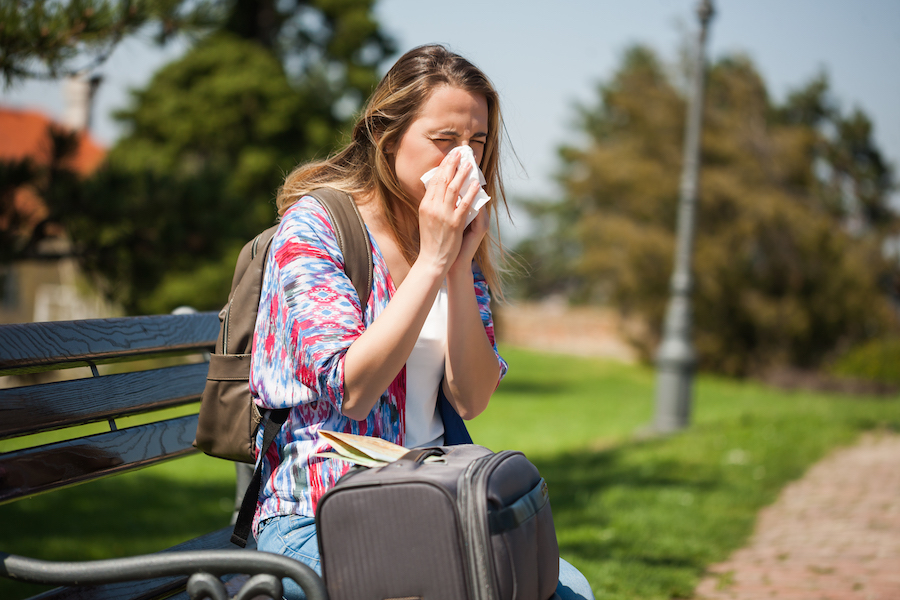Sick Overseas? Plan Ahead With These Tips
Whether you are traveling for a week, studying abroad for a semester, or living in another country for years at a time, one thing you should always be prepared for is the likelihood you will get sick or injured. You may consider yourself to be in good health, but living in a new country, or even a new city, can expose you to allergens, bacteria and viruses that your body may not know how to handle. We’ve compiled some of the top tips to consider both before you travel abroad, and while you are in a foreign country.
-
Check your insurance coverage. Does your current medical insurance include coverage abroad? What does that coverage look like? If it doesn’t, do they offer extra international insurance plans, or will you need to purchase that from a different company? These questions may just be the tip of the iceberg when it comes to understanding your international health insurance options, but they are a good place to start. Contacting your insurance company can be frustrating and a time-consuming process, but figuring out beforehand what coverage you have and what else you might need (such as dental or vision insurance) will ultimately save you time in the long-run.
-
Research the medical facilities and providers for where you will be. If you will be abroad for a shorter period of time, it is still good to have a list of potential places you can go to in the event of a medical emergency, such as hospitals or urgent care. If you are going to be living in another country for a more extended period of time, consider making an appointment with a physician after you arrive to establish a relationship with a doctor and gain a better understanding of how the medical system works.
-
Pack medications. If you will be abroad for longer than three months, you may have to contact your insurance about getting enough of your prescription medication to last for the duration of your trip. Johns Hopkins Medicine also notes that you should bring your prescription medications in their original, clearly labeled containers, and to check beforehand to see if any of them are considered illegal narcotics in the country you are going to. Other than medications you take daily, bring a first aid kit with you with anything else you may need. What you can buy over the counter in the United States may not be so readily accessible on other countries. The New York Times mentions that this kit should include an anti-diarrhea medication, ibuprofen, bandages and antibiotic ointment, and oral rehydration supplements.
-
Keep a document listing your medical history and any medications you are currently taking. You can write this in your passport, or carry it with you in the form of a letter from your doctor. Should you need to visit a doctor, it will be useful to have this already written down so you don’t forget any important information.
-
Stay up to date with vaccinations, including the flu shot. The CDC is a great resource for understanding what you need to know before traveling to certain regions of the world. Some, like the yellow fever vaccination, may be required, while others, like the rabies vaccine, might not be. Make sure you are up to date on other vaccinations as well, such as the MMR vaccine and tetanus shot.
-
Maintain a workout routine. Whether you’re a runner, weightlifter, or yoga enthusiast, find places overseas where you can maintain these activities. If you don’t have a routine, look for gyms, clubs, or public parks where you think you will feel comfortable being active for a little bit of time each week. Not only is staying active abroad good for physical health, but it will also help maintain good mental health, and not just because of the endorphins. Fitness classes or groups are a great way to meet new people, and to help develop a sense of belonging and familiarity in your community.
-
Know what you’re eating and drinking. One of the most common ways that travelers get sick is through foodborne illnesses. Staying healthy might mean drinking bottled water and avoiding street food, for example. However, it’s not always avoidable, and in the event that you do get sick after eating or drinking something, you will be glad to have prepared that first aid kit and list of nearby medical facilities.
-
If your medical issues are serious, contact the nearest U.S. embassy or consulate. They can help you find doctors that they recommend, coordinate money transfers from friends and family in the U.S., or, in the event of an emergency, arrange an airlift out of the country.
The CDC also has a list of things to consider should you fall ill after returning from your time abroad. When you talk to your doctor, let them know where you traveled, how long you were gone, what vaccinations or medications you took, and other important information.
No one ever plans to get sick while traveling, but it’s important to be prepared for anything. Some of these tips might make more sense for those visiting or living in another country for an extended period of time, but it never hurts to prepare for a short trip like you would a longer one.
Resources
